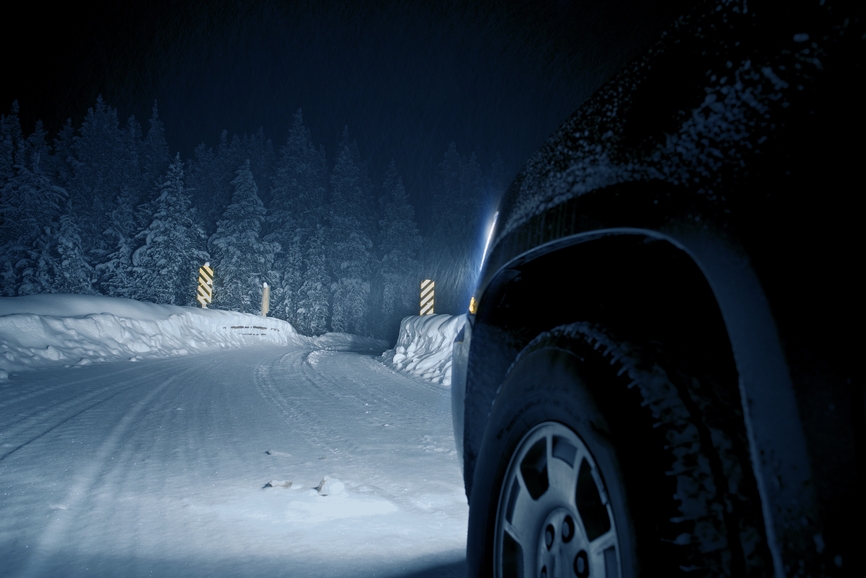
When you must drive in bad weather, winter driving safety tips may mean the difference between reaching your destination unscathed and an unpleasant alternative. In northern Utah, driving conditions can go from normal to harsh in a short time, leaving you unprepared. Before you unexpectedly encounter harsh winter driving conditions, read these simple tips for staying safe on the roads.
Preparing Your Vehicle
Remove snow and ice from the entire vehicle before setting off on your journey. Start the car and allow it to warm up (not in an enclosed garage, however), at least long enough to start producing heat and for the defroster to be effective. Bring along tire chains, traction pads, or at least some sand or cat litter, in the event you become stuck. Also be sure you have a flashlight, jumper cables, ice scraper, flares and plenty of water. Finally, ensure that you have a full tank of gas.
Techniques for Winter Weather Driving
Whenever possible try to avoid driving in bad conditions, especially if visibility is compromised. If it can’t be helped, go as slowly as you safely can. Use your headlights but avoid using your high-beams. Double or even triple the distance with which you follow the vehicle in front of you. When traveling on icy roads, use your brakes as little as possible. If you must use your brakes, apply them slowly and sparingly using a gentle squeeze to avoid skidding. Hard braking, sudden acceleration, high speeds and jerking movements of the steering wheel can all cause skidding. Driving in difficult conditions is especially stressful and tiring. Take a break at least every two to three hours.
How to Handle a Skid
The significance of knowing how to handle a skidding car can’t be overemphasized. Most people have never encountered a skid and consequently panic when they don’t know what to do. No matter what, try to remain calm. If you lose traction of the rear wheels (meaning that the back of the car begins to swing around toward the front), keep your eyes locked on the direction you want to go and steer your car in that direction as well. Do not slam on the brakes. Once your rear wheels regain traction, continue to actively steer, to prevent the car from swinging the other direction. Front wheel skids happen when cars lose traction in the front, taking away your ability to steer. Handle this skid exactly like a rear wheel skid but do apply your breaks lightly and steadily using a squeezing technique.
No matter how careful or capable you are as a driver, you won’t be able to steer clear of mechanical failure if your car hasn’t been properly maintained. Keeping your vehicle in good shape and running properly will help ensure your safety on the road. Serving the Sandy and Salt Lake areas, Emission Time provides on-the-spot vehicle registration renewal as well as vehicle maintenance services. Stop by before your next road trip and ask them to recommend some strategies for winter driving safety.
